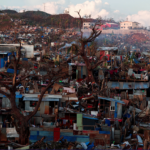
Illicit and unfair trade in Madagascar’s unique plants is threatening entire species, as well as exploiting Malagasy working men and women.
The international wild species trade expert organisation TRAFFIC reports that trade in Malagasy plants – prized for their unique medicinal properties including for skincare and organ health, and against cancer – generates millions of US dollars each year for pharmaceutical companies, yet Malagasy harvesters are paid just US$2-2.50 per day for shifts lasting from 5am to 12pm.
TRAFFIC reports that: ‘This disparity between minimal earnings of local harvesters compared with large profits made by the global pharmaceutical industry using these plants goes against principles of fair access and benefit, which were internationally agreed as part of the Convention on Biological Diversity.’
It also notes that less than 45 per cent of the trade in wild pants from Madagascar is conducted legally (38,500 tonnes of plants were exported legally from 2018-23) and that this trade is beginning to impact the quality and abundance of species including Periwinkle, Baobab fruit and Centella, which hold their unique health properties because of the composition of Malagasy soil.
TRAFFIC’s report highlights and links to several serious concerns which drive us at Money for Madagascar.
The first is the vitality of the Malagasy rainforest – in terms both of its extraordinary fertility and uniqueness, and the fact that it and the plants it contains are literally vital in several ways to the world.
The second is how important it is to protect these forests not only for what they are made of but because these forests themselves hold in place and nourish the soil which delivers these plants their health-giving capacities.
In relation to both of these properties it is vital we act now to protect the Malagasy rainforest, not only to safeguard its plants and their role as part of the planet’s ‘lungs’ in the short- to medium-term, but also because in the long-term, the forest itself protects the soil: once the plants are gone, the soil is often washed away by heavy rain, and once that soil is gone it cannot be replaced for several human lifetimes.
Third, and by no means least, is the simple fact that Malagasy people require and deserve a decent income and standard of living for their labour. TRAFFIC’s report is yet another confirmation that at present, even when dealing with extremely wealthy global corporations, they do not receive it.
That’s why we work with Malagasy men, women and children to improve education, living standards and opportunities, particularly in ways which actively protect and expand the country’s forests and the species within them.
Visit us here to find out more.


 English
English

